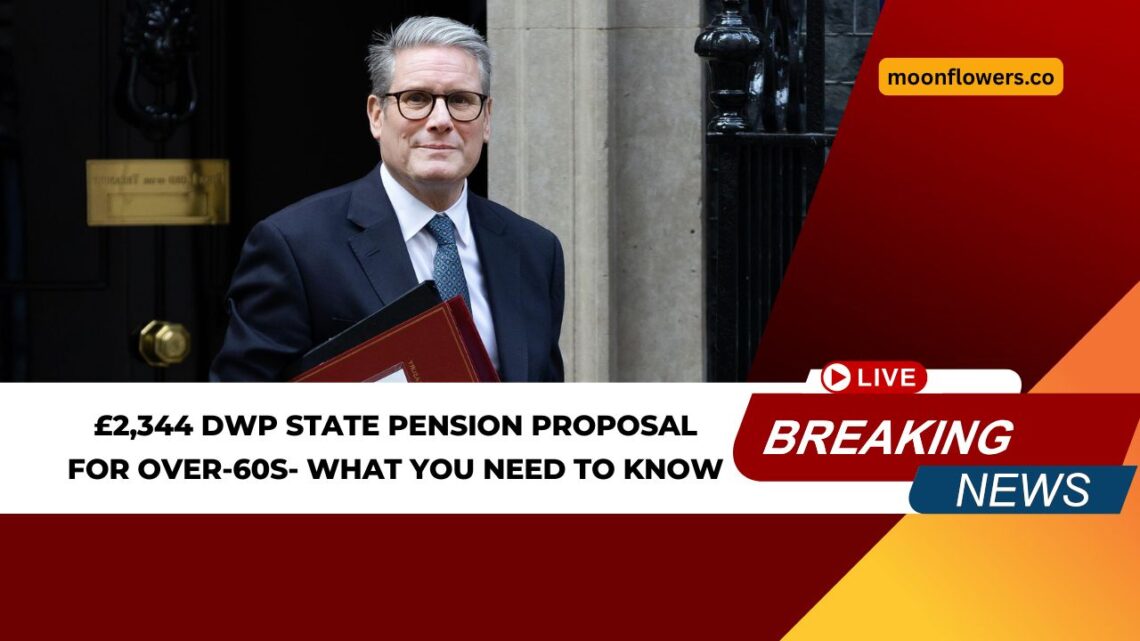There is a growing campaign in the UK demanding that the State Pension be raised to £586 per week, made available from age 60 for all, including expatriates.
If adopted, this would translate into about £2,344 every four-week period, or roughly £30,476 per annum. The petition calling for these changes has already crossed the threshold for a required government response.
Below is an in-depth update with the latest figures, demands, current state, and what it might mean if successful.
What Are the Key Demands?
| Demand | Current Rule | Proposed Change |
|---|---|---|
| Age of entitlement | State Pension age currently 66 for both men and women (rising to 67 around 2026-28). | Reduce entitlement age to 60 for everyone aged 60+ including those abroad. |
| Weekly Payment Amount | New State Pension full rate is about £230.25 per week (with 35 qualifying years). | Increase to £586.08/week (equivalent to 48 hours at the National Living Wage) for everyone 60+. |
| 4-Weekly & Annual Equivalent | Under current rules, pension is paid every 4 weeks at lower levels. | £2,344 every four weeks; £30,476 per year proposed. |
| Pension for Expatriates | Many living abroad have their pension frozen if there is no reciprocal agreement. | Extend increases & unfreeze pensions for roughly 453,000 affected retirees abroad. |
Petition Status & Government Response
- The petition is titled “Give State Pension to all at 60 and increase it to equal 48hrs at the National Living Wage”.
- Created by Denver Johnson.
- As of early September 2025, it has amassed over 13,000 signatures, surpassing the 10,000 mark which triggers an official government response.
- To be considered for a Parliamentary debate, it must reach 100,000 signatures.
Financial Implications & Feasibility
- The proposed payment of £586/week is more than 2.5 times the current full new State Pension (~£230.25/week).
- Implementing universal pension at age 60 would significantly increase government expenditure. Public finance experts are raising concerns about whether such a change would be affordable, given existing pressures on public spending and pension commitments.
What the DWP & Government Say
- There is no indication yet that the government has agreed to make these sweeping changes.
- Previous government statements have rejected similar calls, especially about reducing the State Pension age to 60 or matching pensions with the National Living Wage for all.
- The DWP must respond officially now that the petition has passed 10,000 signatures. That response is expected to outline the government’s position and possible next steps.
Who Stands to Benefit?
- All people in the UK aged 60 and above, including those who currently do not qualify under current rules.
- Ex-pats whose pensions have been frozen due to lack of reciprocal agreements, estimated at about 453,000 retirees.
- Those with fewer than 35 years of National Insurance contributions would likely still qualify under a universal pension rule if changes are applied broadly.
Risks & Challenges
- Cost: Massive fiscal cost to the Treasury.
- Inflation & Stability: Ensuring the pension remains sustainable and keeps pace with economic changes.
- Equity: Whether people who deferred pension or paid more contributions are fairly treated.
- Political Will: Changes require legislation and political compromise; as of now, no formal plan.
The call to raise the State Pension to £2,344 every four weeks (i.e. £586/week) for all aged 60+, including expatriates, is gaining momentum. Having already secured enough signatures for a government response, the proposal is now firmly on the table, though its ambitious scope means many financial, legislative, and political hurdles remain.
For now, it represents a clear expression of public demand, and all eyes are on how the Department for Work and Pensions will respond in the coming weeks.









